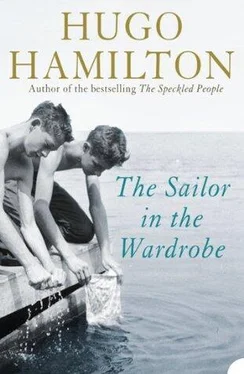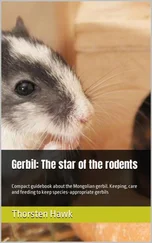The next day, Brother K started a big inquiry. All classes were called off until further notice, until the perpetrator was found, until somebody owned up and took responsibility for the crime. For two days we did nothing except wait in line to be questioned in an empty room. He called each boy in separately, then sat in silence for a long time, staring at him, hoping that he would break. Brother K had a shiny red face and an upper tooth missing, a molar that left a black gap whenever he smiled. But he kept his mouth firmly shut, with a serious grimace, just waiting. He had all the time in the world, he told me. I heard the buses going by outside and the seagulls on the roof of the school. We waited and waited. I knew he had the power on his side and that I had only the weakness of being always guilty and having no friends in the world. But then I knew I also had some of the power on my side, because he had carried out the biggest injustice ever on my own brother. For once it was good to have no friends and to be totally alone in the world, because it makes you a better criminal. I didn’t have to tell anyone what I had done, not even Franz. I was only waiting for the moment when I could tell Packer, so that he would be friends with me again. He would turn the whole thing into a great legend and tell the story like it was a film. He would introduce me to all kinds of new people, saying here is the man who stole the instrument of torture, the thing that was most hated by anyone who ever went to school.
‘I know you did it,’ Brother K said.
I went red in the face immediately, as if he had switched on a light. I was shaking and started getting sick in my stomach with fear. I was ready to collapse and make a confession. But then I wondered how he could be so sure it was me, unless he saw me actually taking it or hiding it in the Municipal Gallery next door. I said nothing. I guessed that he was saying the same to every other boy in the school, waiting for the guilty person to crack. He spoke my name slowly, then repeated his accusation.
‘You did it.’
‘No I didn’t,’ I said.
‘You’re only making it worse for yourself,’ he said.
I was compounding everything, the lie that covers up the initial crime. It would spiral out of control in a vicious circle of lies and deceit. He stared at me for a long time, then smiled. I even smiled back until he suddenly went very serious again.
‘I’m giving you a last chance to think about it,’ he said.
He finally told me to step outside while he called in the next boy. I was certain that he knew everything just by divine inspiration. I became desperate and thought of ways to undo what I had done. I imagined that none of this was happening, that my brother never got attacked outside school in the first place. I started undoing everything in history as well, all the things that happened during the Nazi times. I tried to imagine that there was no such thing as the Irish famine. No war over the Suez Canal, no invasion of Hungary, no Vietnam. I wanted to be able to stop houses burning. Stop ships sailing out, stop trains leaving the station.
I thought of slipping out to the Municipal Gallery and retrieving the instrument of torture, replacing it quietly while nobody was looking, leaving it to be found by other boys on the floor of the classroom. But it was too late for that. I prepared a confession. After two days, I was ready to crack. Then Brother K made an unexpected announcement. He said he had drawn up a shortlist of five key suspects. He was not giving out the names yet, in order to allow the perpetrator one last chance to come forward voluntarily. There was still time, he said. After lunch, he would name the five suspects and punish the living daylights out of them so that the pain would be felt all over the school and through the streets of Dublin, down O’Connell Street and out into the suburbs. The pain would go nationwide. Four of them might be innocent, but it was important not to allow the real culprit to get away.
During lunch break, I heard the other boys saying to each other that they would absolutely crucify the guy who did it. If he didn’t own up and save the innocent from being punished, he was going to need a wheelchair. I was caught both ways. I was certain that Brother K was bluffing and that he had no idea who did it. He was lashing out indiscriminately. But the alternative might be even worse, if the boys suspected that I was responsible.
When Brother K finally paraded the five suspects in front of the school, I realized I could get away with it. I had the moral problem of seeing others being punished for my crime, but before Brother K even got a chance to start the punishment, some of the boys in our class got up the courage to protest and say it was a massive injustice. They began to accuse Brother K of acting outside natural law. It was Packer, above all people, who stood up and spoke out.
‘It’s not fair,’ he said. ‘You have no right to punish people without proof. It’s morally wrong.’
Packer became the hero of the day, as if he had taken the instrument of torture himself. He had taken my place and was now going to be famous all over the school, like the leader of some great rebellion, full of courage and selfless inner strength. Others in the class began to back him up, as if he had given them the strength to speak out at last. He had liberated them. It was happening all over the world at the time. There were black civil rights marches in America. People protesting against the war in Vietnam. Civil rights marches in Belfast and Derry too. We could see the trouble coming on TV, police punishing innocent people on the streets who were trying to run away. The British army bursting into people’s houses. Things could not go on like that for ever.
Everybody was arguing openly now. Some of the boys were talking about the Geneva Convention. Others were talking about the final court of justice, quoting bits from The Merchant of Venice and The Mayor of Casterbridge . In the middle of all this, people jumped up and began shouting, saying it was a return to barbarism and lynch law. Summary judgment.
‘It could have been anyone,’ somebody said.
The whole class was on its feet. I jumped up as well and Brother K was suddenly overwhelmed by dissent.
‘Maybe it was me,’ I shouted, and they all thought it was the best joke ever, because I was the last person they imagined as the culprit.
‘Yeah,’ they started saying after me. ‘I did it. It was me, brother.’
Brother K was finally forced to back down. He didn’t give in easily and turned on Packer instead.
‘Behold, the true culprit,’ he said. ‘Masquerading as a liberator.’
It was Brother K’s only way out. He wanted to turn the rest of the class on Packer like wolves, hoping they would tear him apart. He suspended the punishment of the five suspects, hoping the class would take out its pre-emptive revenge on Packer instead. He resumed the classes and everything went back to normal. He was waiting patiently for the perpetrator to seek recognition for his crime. He was certain it would not be long before the real culprit would step forward into the light.
Nobody ever owned up and nobody ever guessed the truth. In the end, they all believed it was Packer who had done it, only that he still wouldn’t admit to it openly. The more he denied it, the more they believed it was him, because they needed to solve this mystery and decided he was their revolutionary folk hero. He remained silent whenever they asked him, as if he was above praise. He had the integrity of a real leader, they said, the person who refused to take the glory for himself. Only the great people in this world have such an assured vision. He became untouchable and I think even Brother K began to respect Packer’s inner strength and leadership.
Читать дальше
Конец ознакомительного отрывка
Купить книгу












